Horse’s Mouth, The (1958)
“I’ll tell you something, straight from the horse’s mouth: you have to know when you succeed and when you fail, and why. Know thyself, in fact. In short, you have to think.”
|
Synopsis: |
|
Genres, Themes, Actors, and Directors:
Review: Indeed, it’s to Guinness’ enormous credit that we find his deceitful character so oddly “appealing” — and even charming (almost!) in his single-minded pursuit of his craft. As Peary argues, “We’d almost think Gulley insane if it weren’t for several moments when he talks about art and what it means to him”, at which point his “character is suddenly clearheaded, wise, inspired and inspiring”, evincing “an intellectual approach to his art” that leads to numerous expressive quotes — as when he enjoins Walsh to “feel the picture with your eyes… the lights and the shades, the cool and the warm”. As Peary points out, however, this film is ultimately concerned with demonstrating how “no one but another great artist could grasp how [Jimson] feels, what he sees, or what he paints” — and thus, “he must remain alone and isolated, an irritant to society, an idol to aspiring young artists, an outsider, a visionary with a great new, but probably impossible, idea in his head”. Peary’s articulate review of Guinness’s “marvelous” performance does justice to the film’s unique portrait of an artist who may be permanently unhinged, but whose single-minded pursuit of creative expression is truly a feat to behold. We see the humor in Guinness’s actions even as we cringe at his overtly critical manipulation of others, given that we can sense what a vital role he plays in “an England that was changing socially and politically”. After all, he does possess legions of adoring fans — not just bright-eyed young aspiring artists and critics (including the hilariously obsequious tag-along Morgan), but high-society admirers such as Lady Beeder (Veronica Turleigh), who seems not-at-all perturbed by Guinness’s destruction of her manor while she’s gone on vacation, though her husband (Robert Coote) is a bit less tolerant. While Guinness’s performance clearly dominates the proceedings, equally impressive is Kay Walsh — perhaps best known by film fanatics as “Nancy” in David Lean’s Oliver Twist (1948) — as his reluctantly loyal on-and-off-again girlfriend. She epitomizes our collectively begrudging support of artists in general: they may be intolerably narcissistic and infuriating, but we need them to push the limits of our creative vision, and Walsh senses this on some level; meanwhile, her level-headed rationality is a crucial counterweight to Guinness’s flighty temperament (what would he do without her?). She’s given plenty of meaty lines (courtesy of the fine script, by Guinness himself), and the entire proceedings are filmed in wonderfully expressive hues by director Ronald Neame and cinematographer Arthur Ibbetson. The Horse’s Mouth isn’t always easy to watch — Guinness’s Gulley Jimson is an undeniably hard pill to swallow — but it should be seen at least once by all film fanatics. Redeeming Qualities and Moments:
Must See? Categories
Links: |
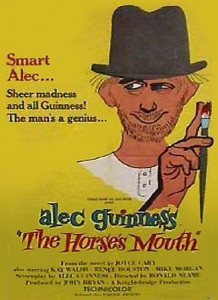
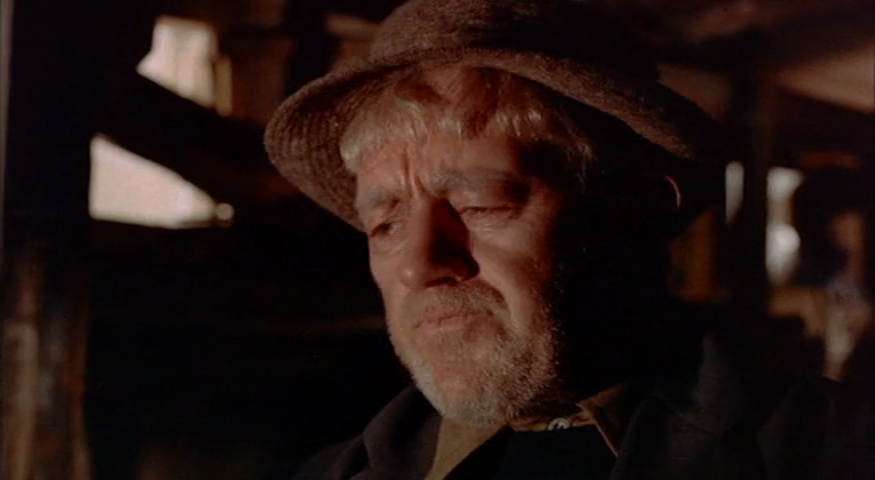
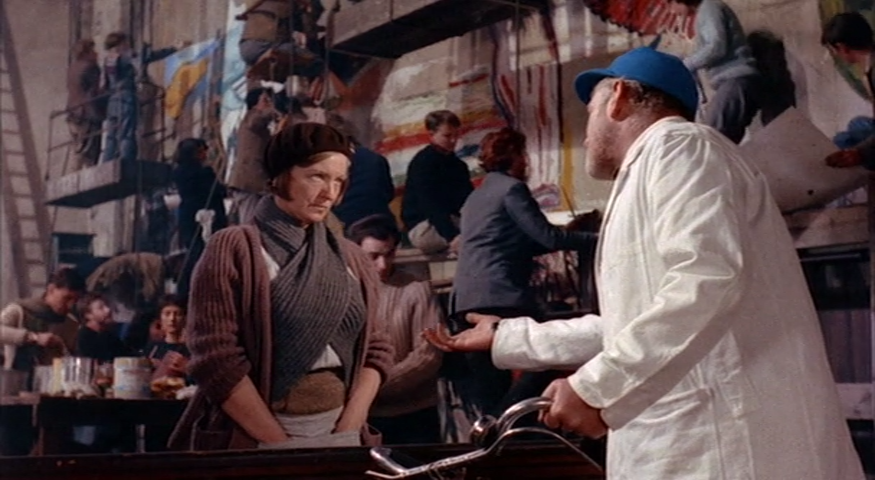

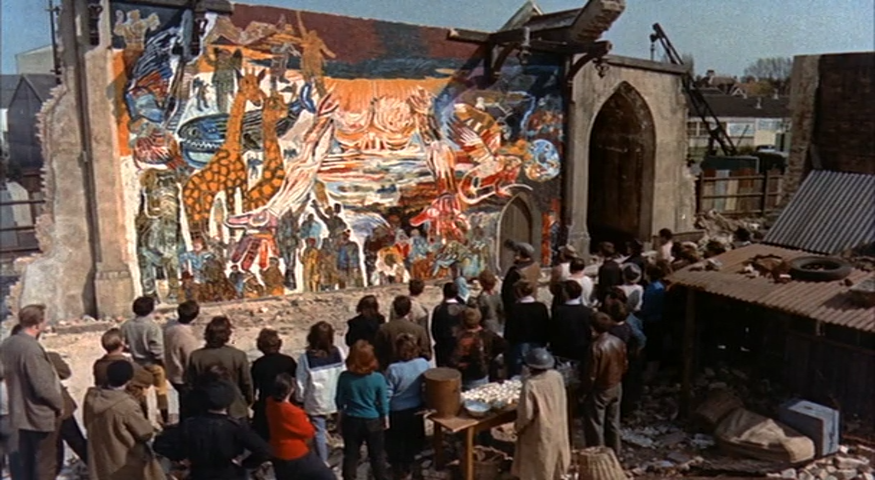
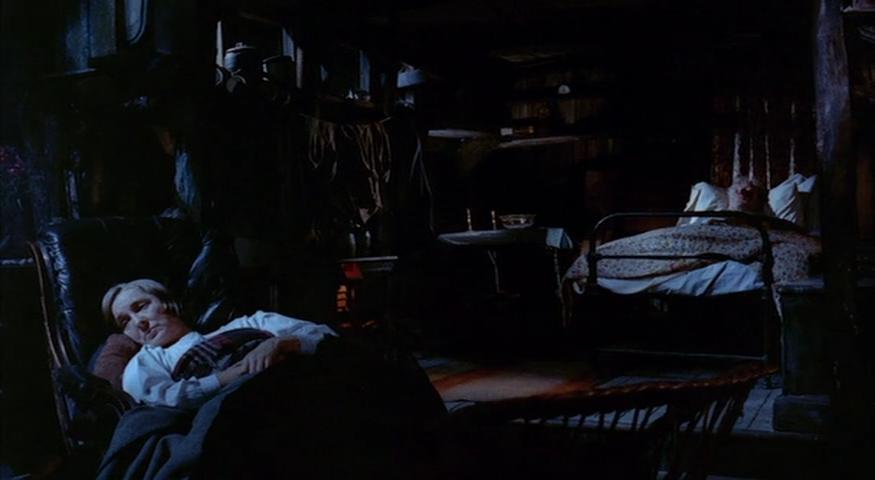
3 thoughts on “Horse’s Mouth, The (1958)”
First viewing.
I’m afraid I’ll have to take a contrary POV here. I found the film not only a real chore to get through but off-putting and insular.
One may sense what might have attracted Guinness to the project, as he may have seen an opportunity to speak for himself as an actor through the character he is portraying. He strongly urges his young ‘groupie’ to not be an artist. In his authorized biography, Guinness mentions the constant disappointment he felt in and about himself and his work. He was, of course, much too harsh in his self-appraisal – nevertheless, that self-doubt echoes through Gulley, even though he forges ahead. Both actor and character are compelled to go on, as if they can’t help themselves.
In his bio as well, Guinness himself states that he didn’t feel he had pulled off the character of Gulley adequately. (The film did not do well at the box office.) Allowing for Guinness’ general lack of confidence, I’d have to agree with him here. (And I’m a huge Guinness fan.)
This is a short film (95 min.) which seems much longer to me. I didn’t even feel any kind of reprieve from its air of indifference.
This isn’t an easy film to watch, that’s for sure — truth be told, I actually had to take breaks and watch it in several installments over time.
But its bizarre charm (to me, anyway) gradually worked its magic, and by the end I found myself swayed enough to give it the positive review indicated above. That was strange, since partway through I was actually more in line with your assessment.
I certainly didn’t feel that it was indifferent in any way — there is a kind of compulsion at play here but it felt authentic to me. It seems to me I’ve known plenty of deeply unhappy (and sometimes cynical) yet driven artists. Guinness could perhaps have injected more levity into his character, but I found it somehow refreshing that he didn’t.
As an audience member, I felt I was kept at arm’s length the entire time. I kept hoping that, at some point, there would be some shift that would somehow, through any of the characters, pull me in. But ultimately I felt it ended where it had started and the audience had gained nothing for its time. Thus, the ‘indifference’ of lack of insight. (I know it was also meant to be amusing at times but I felt that aspect was forced.)